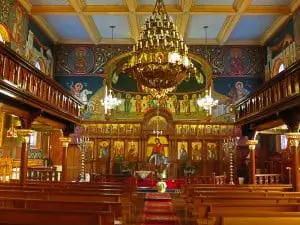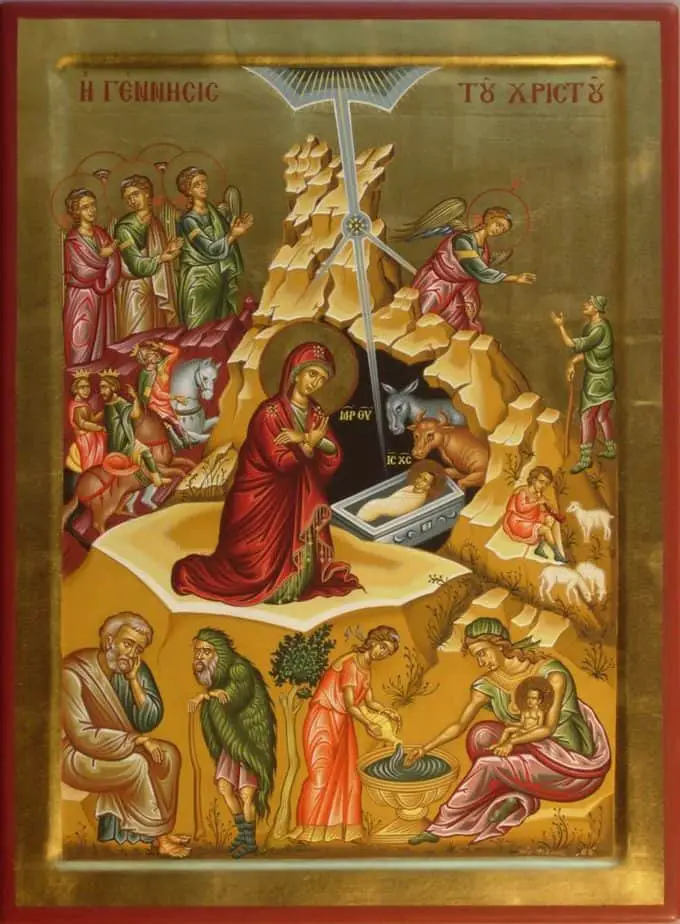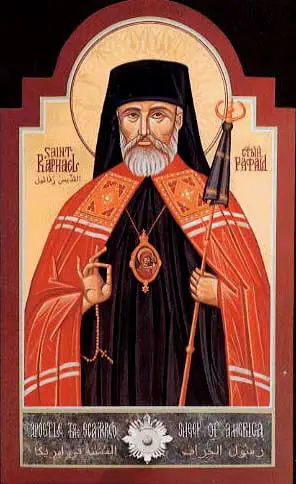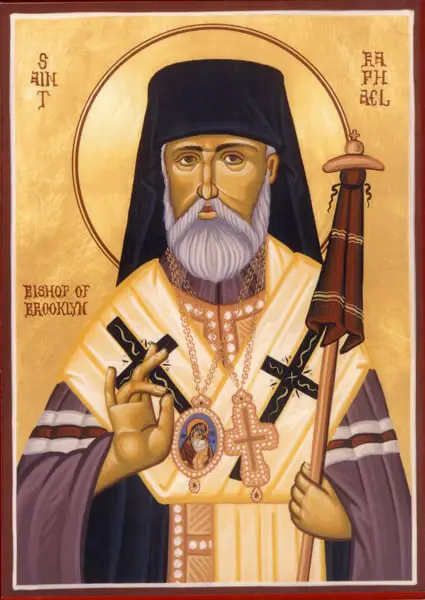As to members of the Holy Orthodox Church living in districts beyond the reach of Orthodox Catholic clergy, I direct that the ancient custom of our Holy Church be observed, namely, in cases of extreme necessity, that is, danger of death, children may be baptized by some pious Orthodox layman, or even by the parent of the child, by immersion three times in the names of the (persons of the) Blessed Trinity, and in case of death such baptism is valid: — but, if the child should live, it must be brought to an Orthodox priest for the Sacrament of Chrismation.
In the case of the death of an Orthodox person where no priest of the Holy Orthodox Church can be had, a pious layman may read over the corpse, for the comfort of the relatives and the instruction of the persons present, Psalm 91 and Psalm 118, and add thereto the Trisagion (“Holy God, Holy Strong One,” etc). But be it noted that so soon as possible the relative must notify some Orthodox bishop or priest and request him to say the Liturgy and Requiem for the repose of the soul of the departed in his Cathedral or parish Church.
As to Holy Matrimony, if there be any parties united in wedlock outside the pale of the holy Orthodox Church because of the remoteness of Orthodox centers from their home, I direct that as soon as possible they either invite an Orthodox priest or go to where he resides and receive from his hands the holy Sacrament of Matrimony; otherwise they will be considered excommunicated until they submit unto the Orthodox Church’s rule.
I further direct that Orthodox Christians should not make it a practice to attend the services of other religious bodies, so that there be no confusion as to the teaching or doctrines. Instead, I order that the head of each household, or a member, may read the special prayers which can be found in the hours of the Holy Orthodox Service Book, and such other devotional books as have been set forth by the authority of the Holy Orthodox Church.
+ St. Raphael of Brooklyn
Letter to Clergy and Laity of the Syrian Greek-Orthodox Catholic Church in North America addressing the Orthodox relationship with the Episcopal Church
Issued late in the year 1912; from The Most Useful KNOWLEDGE for the Orthodox Russian-American Young People, compiled by the Very Rev’d Peter G. Kohanik, 1932-1934 (pp. 297-303).
Read Entire Letter Here




